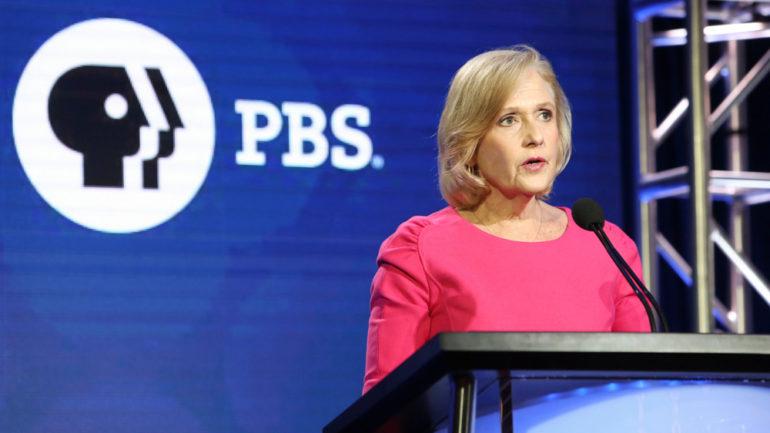Paula Kerger Signs 5-Year Contract Extension as PBS CEO
By Will Thorne
LOS ANGELES (Variety.com) – president and CEO Paula Kerger has signed a 5-year contract extension with the company.
Kerger made the announcement at the network’s summer Television Critics Association press tour. She has been in the role since 2006 and represents the longest-running PBS president in the broadcaster’s history.
“You always wrestle with the question how long is long enough,” Kerger said. “I want to make sure that when I do hang up those skates, I’ve done everything to make sure public television is on a sound a foundation as possible.”
During her executive session, Kerger addressed once again the Trump administration’s continued attempts to zero out federal funding for public broadcasting and how PBS is planning to combat the loss of funding going forward.
“Federal funding remains a vital source of finding for public television…but it represents only 15% of our annual revenue,” Kerger said. “Public-private partnership has always been central to our success…we will be even more deliberate in tapping into philanthropy.”
The PBS chief pointed out that the de-funding also means that PBS has to commit “a significant amount of energy and time” both on a national and local level to “make the case to have funding put back in the budget.” Kerger added that the PBS stations which “benefit small communities in rural markets” will be hit the hardest by the cuts.
Kerger also announced that PBS has secured its first carriage deal with a streaming service in the form of YouTube TV, calling it “an important first step” into the streaming space. Under the agreement, YouTube TV will livestream all of the 330 PBS member stations that choose to participate.
When questions arose about streamers and other rivals making a recent push into the documentary and nature programming space, Kerger reminded everyone that this isn’t PBS’s “first time at the rodeo.”
“At the beginning of cable, when all these channels were created with the idea that they would be the commercial version of public television, PBS had to navigate through some of the same questions,” Kerger said. “In this environment we’re seeing it on steroids, the organizations are suddenly in and the next season suddenly out…We have a strong lineup of natural history and we’re always going to be in that space. Are we blind to what other people are doing, absolutely not. I think we have helped to create the appetite for that kind of programming.”
In terms of the new content coming to PBS, Kerger highlighted several upcoming projects including a two-part biography on the life and presidency of George W. Bush, a documentary series on Asian American history, and a documentary on the iconic actress Rita Moreno.
“: The Girl Who Decided to Go For It” will debut in 2020 and feature interviews with Moreno, Lin-Manuel Miranda, Norman Lear, Gloria and Emilio Estefan, Morgan Freeman, Whoopi Goldberg, Eva Longoria, Justina Machado, Terrence McNally and Chita Rivera. Lear and Miranda are exec producing the project.
“How I wish my Puerto Rican mother were alive to see this: her child’s story being celebrated by the likes of American Masters,” said Moreno in reaction to the documentary. “It is not something she or I could ever have imagined. I’m astonished. I’m humbled.”
The Bush bio, titled “W,” is the newest installment in the “The Presidents” doc collection. The special will feature interviews with historians, journalists and several members of the president’s inner circle, including chiefs of staff Andy Card and Josh Bolten, speechwriter David Frum, press secretary Ari Fleischer among others.
Meanwhile the five-part Asian American series will examine the significant role of Asian Americans in shaping American history and identity, from the first wave of Asian immigrants in the 1850s and identity politics during the social and cultural turmoil of the 20th century to modern refugee crises in a globally connected world.

